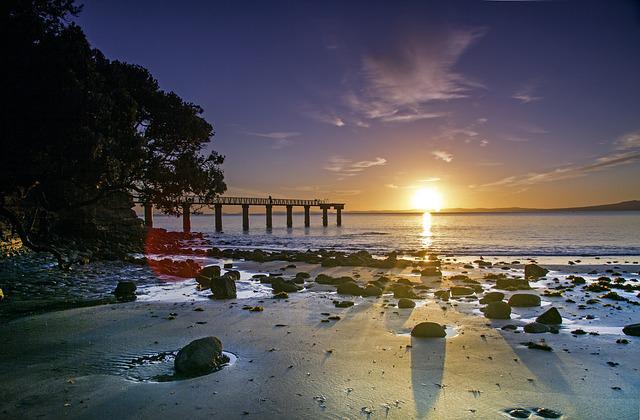More than 50 jobs are being created and millions of dollars invested across Tāmaki Makaurau/Auckland with the launch of three new Government-backed initiatives, Conservation Minister Kiri Allan says.
The initiatives Рwhich involve the Department of Conservation, Ngāti Rehua Ngātiwai ki Aotea Trust, and The Sustainable Business Network Рwill help tackle COVID-related job losses while building an environmental legacy.
“TƒÅmaki Makaurau has taken quite a hit over the past two years, with the region experiencing longer lockdown restrictions than anywhere else in the country,” Allan says.
“These latest projects will add ‘boots on the ground’ to ambitious and much-needed conservation efforts across the region and help grow a sustainable nature-focused workforce.
“One initiative establishes a trapping network on 15 maunga across the city, with the restoration of their cultural landscape expected to significantly contribute to a bid to elevate them to World Heritage status.
“A similar network on Aotea/Great Barrier Island is focused on preventing the extinction of tƒÅiko (black petrel), brown teal (pƒÅteke), and other endemic species such as kƒÅkƒÅriki (red crowned parakeet) and miromiro (tomtit) on Aotea.
“The third project aims to restore the Puhinui stream, a waterway which leads out to the Manukau Harbour and has significant cultural and historical value to iwi and the South Auckland community. Training will include plant propagation and identification as well as scientific monitoring and plant and pest control.
“All three projects are collaborations with and/or led by iwi and hap≈´, creating opportunities for iwi and communities to build skills and conservation knowledge.
“TƒÅmaki Makaurau is our biggest city. Living elsewhere it can be tempting to think of it as being just another sprawling metropolis with too many shopping malls and tall buildings. These projects prove it is far more than that – it is home to unique habitats and ecosystems, which with some connected up nurturing, will result in some big conservation gains for us all,” Allan says.
The projects:
DOC will be investing $3 million in Te Mauri Hauropi o Ngā Tūpuna Maunga/Tūpuna Maunga Biodiversity strategy led by the Tūpuna Maunga Authority. The funds will be used to create jobs over the course of three years across 15 Tūpuna Maunga in the Tāmaki Makaurau region to undertake pest eradication work and native revegetation work.
NgƒÅti Rehua NgƒÅtiwai ki Aotea Trust’s T≈´ Mai Taonga will receive $2.1 million to create a local conservation workforce over a three-year period to undertake pest eradication work in the Aotea Conservation Park and Northern Aotea. The project will see monitoring of wildlife and scaled-up landscape operations that build on community support with the aim of opening pathways to a predator free Aotea.
The Sustainable Business Network will receive $1 million for the South Auckland Puhinui community to restore the Puhinui Stream and Manukau Harbour. The two-year project, Te Whakaoranga o te Puhinui me to Manuka/Restoring the life force of the Puhinui stream and Manukau Harbour, will involve stream and nature restoration, plant and animal pest control, native tree propagation, scientific and cultural environmental monitoring and will incorporate Matauranga Māori principles. There is a strong focus on creating nature-based careers for local people.



